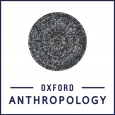Call for Papers: Special issue of JASO
CALL FOR PAPERS:
Special Issue of the Journal of the Anthropological Society of Oxford (JASO)
Uncertainty and Survivance: What remains after the crisis?
Guest Editor: Wesam Hassani
Submission Deadline: January 31st, 2023
We often confront uncertainty, in life events and in making choices, that can prey on our emotions and affect our decision-making process. Uncertainty reminds us, time and again, of the pervasive interconnectedness of life events, ecologies, and cosmologies of knowledge and action. However, is uncertainty a solid concept that is defined, felt, and acted upon in the same way everywhere?
This special issue seeks to understand the relationship between uncertainty and survivance (Vizenor 2008), and how these two concepts are being conceptualized and acted upon in different contexts and localities. We aim to examine, both, the challenges and opportunities that manifest the techniques of bargaining with the uncertain, and the dialectics “between contingency and agency in situations of rupture, transformation, and scarcity” (Calkins 2016:4). We seek papers that delineate the experience of survivance and its techniques in relation to different types of uncertainty (the biomedical, the economic, the ecological, the social, and the political), especially at times of transformation and crises. We also seek to move beyond these two themes, uncertainty and survivance, to provide different perspectives that theorize human adaptability to misfortune and life’s calamities. We hope that the special issue would animate doctoral students and early career researchers, among others, and create a space for diverse and open discussions about the theme. We seek papers that ask:
- How can survivance, a concept from critical Native American studies, help the understanding of techniques of surviving the uncertain in outside the Americas?
- How might uncertainty and / or survivance be conceptualized according to the specific localities and temporalities of ethnographic research, and towards an anthropology of uncertainty?
- How do people who are rendered more marginalized than others navigate uncertainty and what are the forms, ideals, and techniques that they deploy?
- At/after times of transformation, whether on the collective or individual level or both, how do people identify what matters for them/what they count on to survive a crisis?
References:
Calkins, Sandra. Who Knows Tomorrow?: Uncertainty in North-eastern Sudan. New York, 2016.
Vizenor, Gerald Robert. Survivance : Narratives of Native Presence. Lincoln, Nebraska, 2008.
Submitting your paper
Papers should be between 7,000 to 10,000 words (plus 250 word abstract), including references,
and will be blind reviewed following the journal’s standard peer review process.
Manuscripts should be prepared according to the guidelines,
see: https://www.anthro.ox.ac.uk/jaso/notes-for-contributors
Papers should be submitted by email before the deadline January 31, 2023 to JASO’s guest
editor Wesam Hassan at wesam.hassan@anthro.ox.ac.uk cc to jaso@anthro.ox.ac.uk.
The special issue will appear in the second half of 2023.
 i Wesam Hassan is an anthropologist and a physician by training. Currently, she is a PhD-candidate in social anthropology at the University of Oxford, in which she is researching state-regulated games of chance practices and perceptions. In her MA thesis, she researched biomedical uncertainty through investigating the governance of HIV positive subjectivities and its related biopolitics in Egypt. She thinks through concepts of uncertainty, gambling, and risk. Prior to her academic career, Wesam has consulted and worked as a public health specialist and researcher with number of the United Nations agencies, John Hopkins University (health Communication Capacity Collaborative HC3), and INGOs with a special focus on the intersectionality between HIV and AIDS, gender, harm reduction, and sexual and reproductive health and rights. Since 2016, she has been researching material culture and consumption habits by conducting and analyzing several ethnographies in Iran, Egypt, London, and Turkey. These ethnographies have investigated womanhood and cleaning rituals in Iran, online gambling and betting in London, and the perception and usage of the Internet of Things and smart homes as a concept in Egypt.
i Wesam Hassan is an anthropologist and a physician by training. Currently, she is a PhD-candidate in social anthropology at the University of Oxford, in which she is researching state-regulated games of chance practices and perceptions. In her MA thesis, she researched biomedical uncertainty through investigating the governance of HIV positive subjectivities and its related biopolitics in Egypt. She thinks through concepts of uncertainty, gambling, and risk. Prior to her academic career, Wesam has consulted and worked as a public health specialist and researcher with number of the United Nations agencies, John Hopkins University (health Communication Capacity Collaborative HC3), and INGOs with a special focus on the intersectionality between HIV and AIDS, gender, harm reduction, and sexual and reproductive health and rights. Since 2016, she has been researching material culture and consumption habits by conducting and analyzing several ethnographies in Iran, Egypt, London, and Turkey. These ethnographies have investigated womanhood and cleaning rituals in Iran, online gambling and betting in London, and the perception and usage of the Internet of Things and smart homes as a concept in Egypt.



